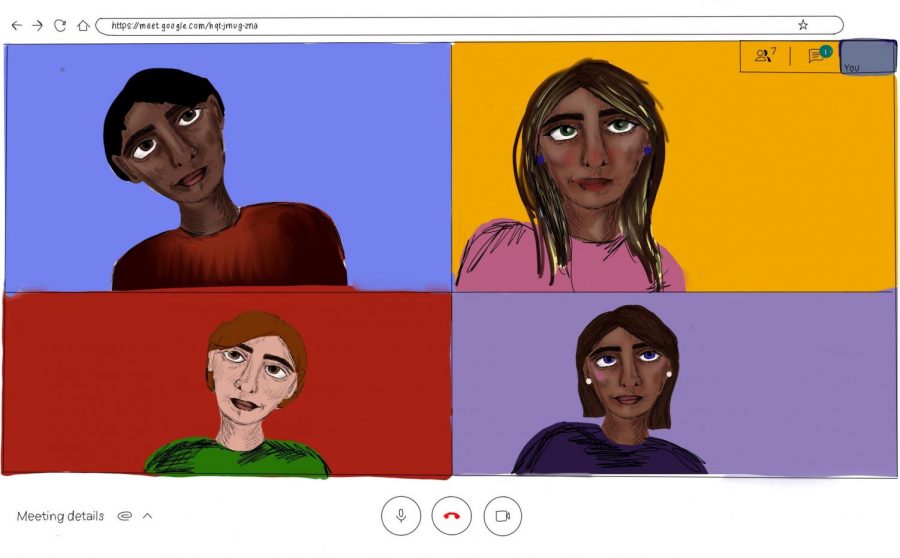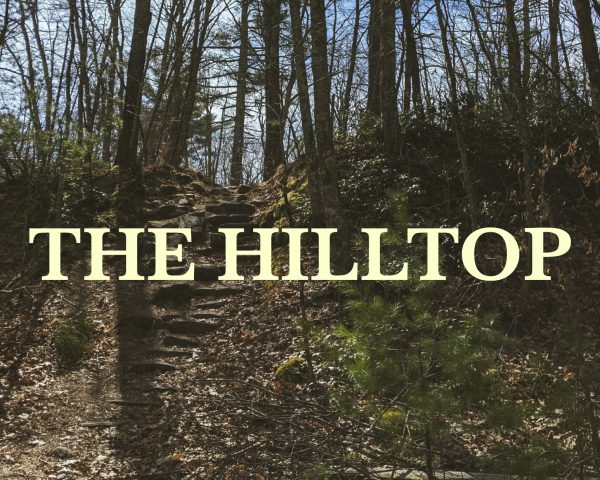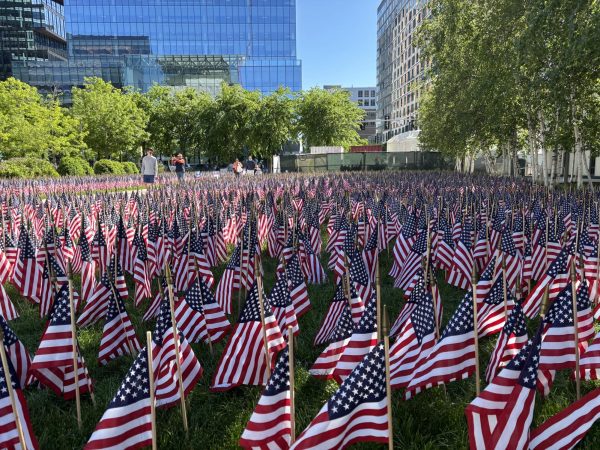Clubs Make Virtual Adjustments Amidst COVID-19 Restrictions
Students and staff use platforms such as Google Meet to hold virtual club meetings and events.
While ample preparation to organize one way hallways, quick response scanning codes, and cohorts have allowed school to function as normal as it possibly can in the hybrid learning model, there have been some unprecedented encounters challenging how school activities operate. Many clubs have made changes to their typical fall activities in order to accommodate for social distancing protocols and other health guidelines so that students can continue to participate in activities this fall.
Drama Club
By Sophia Brownsword and Karissa Della Valle
Due to the nature of these unusual times, clubs at Walpole High have taken a different approach to continue to be able to function. The drama club, headed by James D’Attilio, is used to putting on multiple shows per year, but they are unsure of what this year will bring.
The drama club consists of a group of Walpole High students who audition, rehearse a musical or play for a few weeks and then perform it for a live audience. Usually, the club puts on two productions per year: one in the fall and one in the spring. The students’ personalities, the way they act, and their opinions influence the way musicals and plays are usually chosen.
“I try to get a feel for the drama club and what they like. I have to take everybody’s interest into account to a great degree,” D’Attilio said.
COVID-19 and social distancing guidelines have forced the productions to take a different turn, which has made it difficult for extracurricular clubs to meet.
“We can’t have people sitting next to each other, we can’t have them unmasked, [we] can’t do a standard play where people are walking around on stage,” D’Attilio said. “Given the extreme conditions we’re working under, I chose to do a series of radio plays.”
A radio play is a type of play that solely focuses on the verbal acting of actors and actresses. Radio plays can be performed live but also recorded as audio and listened to as there are no sets or movement, but added music and sound effects. Radio plays do not require the audience to be in the room as the drama club in order to listen to the performance.
“The radio show allows [the club] to read off a script instead of memorizing, which accounts for over half of the time of the rehearsal period. [Also], nobody has to come in contact because people are usually lined up with a music stand with a script on it and a microphone stretched across the stage at a distance. It really fits the needs of what we have this year,” D’Attilio said.
Through all the recent changes, D’Attilio is proud of the drama club and the way that they’ve been able to handle the situation with poise.
“Last March we got canceled the day before the show was due to open and [during] the final dress rehearsal, I had to break the news. Every single person in the drama club handled it with such grace and dignity and even good humor and warmth and kindness, it was incredible. It was the case of the best of times and the worst of times,” D’Attilio said.
Yearbook Club
By Kristyn Dentremont and Annie Cameron
The yearbook club, consisting of student staff and faculty advisers Lara Harris and McKenzie Gould, has already faced challenges that will take some innovative planning in order to deliver a timeline of the 2020-2021 school year that is just as memorable as years past. Figuring out when and where to take pictures now that several events are either canceled or have a limited spectator capacity has been one obstacle to get around.
“We hire professional photographers through LifeTouch, and they have defined safety guidelines in place when photographing our students,” Harris said. “Having said that, the types of photos we will be able to take will be impacted. Many events are either not happening or are very limited – this will impact the typical picture opportunities we count on. We’ll be placing a huge priority on getting the students to submit candid photos to supplement the professional photos.”
The limited in-school time has also impacted how the club meets to work on the yearbook. The adjustment to virtual classes from this past spring and fall has familiarized students and teachers with the program Google Meet, which has become the dominant resource for online learning at Walpole High School. Teachers can launch video calls for students and teachers to communicate and teachers can present their screens to give presentations.
“Currently, we’ve been holding a short virtual meeting each Wednesday at 11am via Google Meet,” Harris said. “The Yearbook is built on a web-based program that needs to be seen and interacted with to be understood. We also offer one in-person after school meeting that alternates each week on a Tuesday and Thursday so that the cohort that is present in school can more easily attend for that week.”
Regardless of the challenges facing the yearbook club, Walpole High School is made of resilient students and faculty who are working together in order to create a memorable yearbook.
“I am very proud of our student’s flexibility and understanding,” Harris said.
TV Production
By Isabelle O’Connell and Grace Ryan
Having to attend school while there is a global pandemic has been difficult for many students. When it comes to receiving news at Walpole High, everyone looks to the Morning Edition, featuring Peter O’Farrell, the TV Production teacher, and his students. They have been working everyday to make sure the student body is up to date and aware of what is going on in the school. Although many students and teachers were unsure about what changes would be made before the start of the school year, it was Principal Stephen Imbush’s idea to continue doing the morning announcements when students returned to school in the fall.
“It was very late in the summer that we kind of realized okay this is what it is going to look like,” O’Farrell said. “No homeroom, and we’ll do announcements between the first and second block.”
Though pre-recording was an option for club members, the news team decided to record broadcasts live between Blocks 1 and 2. Live recordings give students real-life practice for professional news broadcasting, which many students find more enjoyable.
“You have to think on your feet and everything so it’s more enjoyable rather than having a perfect set up because that’s not reality,” junior Morgan Navick said.

In addition to the removal of homeroom, the cohort system at WHS forced the TV Production team to change their procedures. Rather than having the same news anchors, the anchors change based on the cohort that is in school; additionally, the smaller class sizes mean there are less students on staff to help out with the broadcast. In order to deal with the short number or students they have had to make changes in the way they film to put students in the more necessary positions.
“We don’t have people running the cameras this year, we just kind of lock them down,” O’Farrell said.
The equipment in the studio is still accessible, but O’Farrell allows students to use their phones to film if they are more comfortable doing so. After using all the cameras and computers, he sprays all of the equipment and covers it all up for the next day. When interviewing this year, the students have to set up a camera stand with a microphone and stand six feet away. He got this idea from news stations that were following similar protocols.
“I was happy about that because I could show the kids this is really happening in the professional world and you’re doing the same exact thing,” O’Farrell said.
The global pandemic this year has caused changes to many aspects of school and this includes the school news. The new protocols including constant cleaning, and half the students being in the school on a given day, have not stopped the morning news team from happily sharing news with the school in real time. Although their name has changed and there are no longer students controlling the cameras, the TV crew have not lost their identity. The TV production classes have also not seen many changes as they enjoy a stress free zone and continue to do similar projects despite being virtual half of the time.
Speech and Debate Team
By Maggie Mahoney and Gianna Pompeo
This year, as the world dealt with the Coronavirus pandemic, many Walpole High School clubs found creative, new ways to operate safely. The Walpole High speech and debate team has been practicing and performing mostly virtually in order to stay safe while still enjoying the competition and creative environment the club provides.
The most significant change to the team’s activities is the switch to online tournaments, meetings and practices.
“I can have up to 15 students in my classroom, so some come in person when we have our team meetings on Mondays at 2:30,” club advisor Emily Murray said. “Since students mostly compete individually, it is safe to work in person as it’s usually one-on-one. Debate students only meet virtually since they all have to be present for their practices and also because our debate coach, Mrs. Tammie Ruda, being a volunteer coach, can only meet in the evenings with students.”
Murray found that adapting to the technology and dealing with online platforms crashing is the hardest aspect of new online meets, but Murray is optimistic about online competitions continuing.
“It’s hard to compete when you cannot get into your competition ‘room,’” Murray said. “We had our state tournament last year in May, so the [Massachusetts Speech and Debate League (MSDL)] has really mastered the virtual set up.”
In addition to technological issues, there are many other downsides to online meetings such as the inability for the club members to hang out all day at tournaments or have team dinners after competitions, which normally bring the team close together and creates lasting memories and friendships. However, the move to virtual meetings has had many benefits.
“I have more availability to coach students, so I can work with them whenever,” Murray said. “We [also] need judges when we sign up for tournaments, so it’s been easier to find judges as they can judge in the comfort of their own homes. Competing virtually has been easier for me and parents as we don’t have to arrange carpooling to tournaments and other logistical planning. Families can [also] watch [competitions] live on Youtube if students make it to a final round.”
While the setting of the team’s practices and competitions may no longer look the same, the Walpole High speech and debate team has been able to provide the same outlet for students to have their voice heard as other activities such as drama and mock trial remain unable to perform.
Student Council
By Valentine McLaughlin and Farrell Raeke
The COVID-19 outbreak has been an obstacle for everyone, and navigating the 2020-2021 school year during the pandemic has proven to be difficult. Despite the setbacks of not being able to meet in large groups and not having every student in school at the same time, clubs like the Student Council have been working hard to continue holding meetings and hosting events. While many things are different this year, not all of the changes have been negative. The Student Council has gained many members and working together they plan to pursue their goals of helping their community and keeping spirits high among their peers.
“This year is definitely different than past years. We are enforcing strict guidelines not only at meetings, but throughout school as well for our members,” Student Council president Edwin Ryan said.
In previous years, Student Council would hold an election in the fall for new members where each grade had a set number of openings. However, the club is now allowing any student to join in order to accommodate for all of the changes happening at the school.
“It’s unfortunate because a lot of enthusiastic and good kids usually run and don’t end up getting elected because there’s so many people running, but this year it’s great because now they can all be on,” Ryan said. “Hopefully with so many people, we’ll be able to get more events done.”
In the past the student council has participated in trips and activities to raise money and provide food to people in need. Going to food shelters and hosting an annual Pink Walk with the American Cancer Society are just some examples of how the student council helps their community, but because of the COVID-19 safety laws they are unable to hold these events this year. Instead, they have found different ways to continue fundraising while still being safe.
“This year we got creative and [did] a Trick or Treat event for elementary school and preschool families where we drop off goodie bags for the kids and they can step outside in their costumes to show them off,” Ryan said. “With this, we’re also asking for optional donations to American Cancer Society. We’re also hoping to do a fundraiser for Toys for Tots around the holidays and some more as the year goes on.”
Although many clubs are unsure of how they will run in the coming months, Student Council is dedicated to making the year as fun as possible for both club members and the student body.
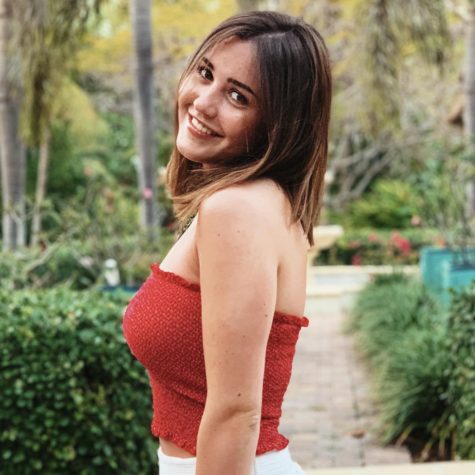
Charlotte Clarke, class of 2021, is the Graphics Editor for The Rebellion. At Walpole High School, she runs cross country and track and is involved in...
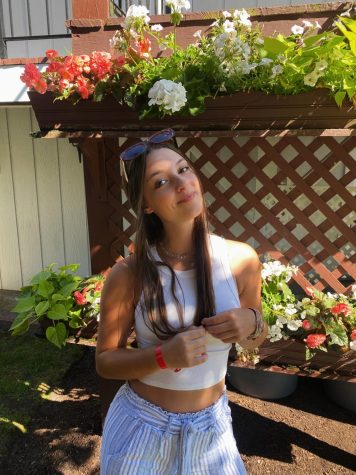
Isabelle O’Connell, class of 2023, is co-Editor-in-Chief of The Searchlight. At Walpole High School, she is a member of NHS, Secretary of the Women’s...



